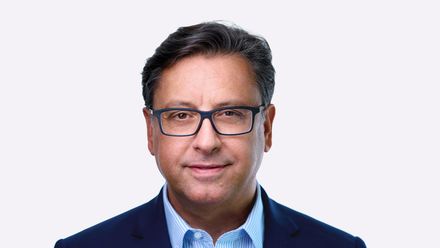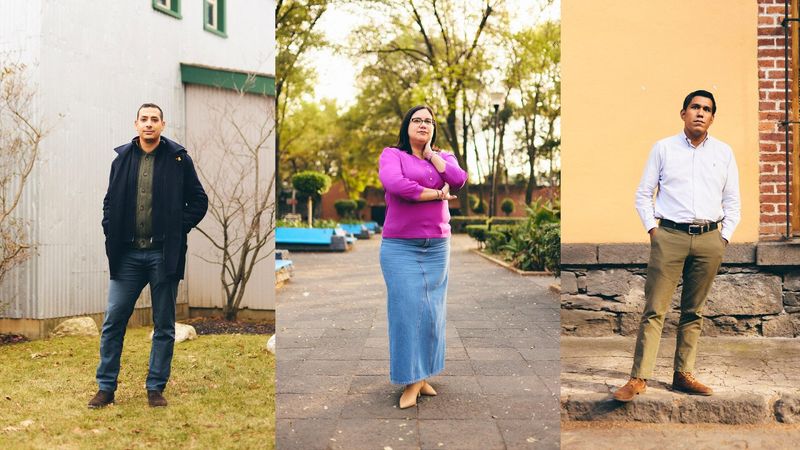A Million Conversations: How we’re bridging the healthcare ‘trust gap’ with marginalized communities

Our new global poll reveals a legacy of distrust in healthcare systems amongst marginalized groups, such as ethnic minorities, LGBTQ+ and people with disabilities. In response, Sanofi announces ‘A Million Conversations’, an initiative to bridge that gap by directly engaging with those communities.
Thanks to a new global poll by Sanofi, we have discovered that a worrying majority of people from marginalized groups – all across the world – have diminished trust in the healthcare system due to past negative experiences. And are suffering unnecessarily as a result.
In the poll, this latent belief has been confirmed by an inescapable body of evidence. One that we, the global healthcare industry, must act on together.
Mind the gap: The results at a glance
Our survey asked more than 11,500 people in five countries (Brazil, France, Japan, UK, the U.S.) about their experiences with healthcare, with large sample sizes coming from marginalized groups. The majority of people from those groups reported a negative healthcare experience, leading to low levels of trust.
- Ethnic Minorities and People of Color are more likely to say they have had experiences that damaged their trust in healthcare compared to non-minorities (73% vs 57%).
- People who identify as LGBTQI+ report a similar experience (66% vs 58% of their straight peers).
- Perhaps most worrying of all was that people with disabilities, a group who fundamentally rely on healthcare, expressed the largest trust gap compared to non-disabled people (73% vs 56%).
The survey also explored trust and intersectionality. And the results are clear. Startling even. People who fell into more than one of these groups were significantly more likely to have had a bad experience while seeking care (Black and gay, for instance).

We must train providers to recognize and overcome unconscious bias, to communicate with clarity and empathy — and, crucially, to listen carefully and respectfully to patients of all backgrounds. We cannot let the disparities seen in this survey persist. These stark findings should spur reflection and drive change. These findings are yet another wake-up call for a healthcare system in urgent need of reform. I find it deeply troubling, though not surprising, that so many individuals — especially those from marginalized communities — have lost trust in their providers and in the system. To close this dangerous health gap, we must diversify our healthcare workforce so that people from all backgrounds can find providers who understand their lived experiences.

Michelle A. Williams
Dean of the Faculty at the Harvard T.H. Chan School of Public Health
A legacy to learn from
As obvious as it seems to say, this lack of trust can and has already proven devastating to those in need of treatment. The recent global pandemic being a real case in point - pervasive mistrust made it extremely difficult for public health officials to reach vulnerable communities with vital information.
For some, their views may be shaped in part by an understanding of historical abuses of power. For others, it’s about a lack of representation or experiences of discrimination But it can also be simpler than that. More than a third of people interviewed say that “not being listened to” ranked first in their reasoning for their distrust. And perhaps this should come as no surprise.
A recent study in Brazil revealed that 49% of doctors surveyed had witnessed inequality in how LGBTQ+ patients were being treated.
In the UK, maternal mortality rates are still far higher for Black, mixed ethnicity and Asian women than of White mothers.
The data speaks for itself.
A leap of collective good faith
But that’s not where we want this story to end. We’re motivated by this challenge. And together, we can tackle this epidemic of broken trust.
Because the polling also gave us a unique insight into what actions are most likely to restore trust: being treated fairly, making healthcare accessible, offering the best quality care among others. Ultimately, trust is won through long-term relationship building, listening and acting on what is being said.
The healthcare industry has an opportunity to do more to work with, and for, marginalized communities. We must help amplify their voices and concerns rather than speaking over them or on their behalf. We must double down on diversity and inclusion, not slow down.
A Million Conversations: playing our part to rebuild trust
People need healthcare systems – at all levels – to better reflect society. So we must listen to marginalized communities more and use those insights to help the healthcare industry, policymakers and governments to fix the causes of these trust gaps.
As an innovative global healthcare company, we have a role to play in responding to the destabilizing situation underrepresented populations are in when they need care. We aim to help build the next generation of diverse healthcare leaders. By also working to build trust through conversation and dialogue between underrepresented communities and healthcare stakeholders, we can help improve engagement and health outcomes for all.

Paul Hudson
Chief Executive Officer, Sanofi
A Million Conversations is our response to this challenge. A plan to nurture trust in healthcare by investing €50m to help close the trust gap substantially by 2030.
Building bridges of trust
Over the next eight years we’ll deploy our expertise and resources to support people to become ‘bridges of trust’. Thousands of diverse healthcare professionals, doctors, nurses, researchers and patients too who will be empowered to have the conversations we know are essential for lasting change. A Million Conversations will see Sanofi take three decisive actions to achieve this.
1. The next generation of healthcare professionals
We will launch a new global scholarship program for individuals from diverse communities to pursue a career in healthcare or related fields.
The Sanofi NextGen Scholarship will cover partial university fees, living costs and offer developmental support, mentorship, and internship opportunities. We’ll work in partnership with leading higher education institutions across the world to identify talented people who are keen to make a difference.
We are also partnering with Coursera to provide open access to its Career Academy to people from diverse and lower socioeconomic backgrounds.
Because we know that when given the proper support, people can play a powerful role in changing the landscape of healthcare for the better; improving representation to help drive a renewed sense of trust in homes around the world.
2. Listening and acting on what we hear
We will also run hundreds of dialogue events in the heart of local communities, where people can share their stories, experiences and ideas directly with the healthcare industry.
Whether they’re women, people from ethnic minorities, disabled people or those within the LGBTQ+ community - they deserve their stories to be heard, and acted on.
3. From paying attention, to accelerating action
From these conversations we will produce research, data and policy recommendations that we intend to lead to real action on trust and health inequality.
We don't have all the answers, which is why we are building a coalition of non-profits, activists, businesses and governments to carry out research, share best practice and coordinate activities to achieve real and lasting change.
Because as the world lurches from one crisis to the next, and as industries and even governments around the world dial back on prior commitments to diversity and inclusion, it’s only by working together that we can do more to ensure that gap is bridged.
Closing the trust gap
We can’t ignore how belonging to a marginalized group increases the likelihood of a trust-damaging experience any longer. Especially for people from more than one of those communities.
We have a duty to ensure that we chase the miracles of science to improve people's lives. Regardless of who they are, or where they come from. And we won’t rest until it becomes all of our reality.
Explore more

New voices join A Million Conversations

Paulo's Story
